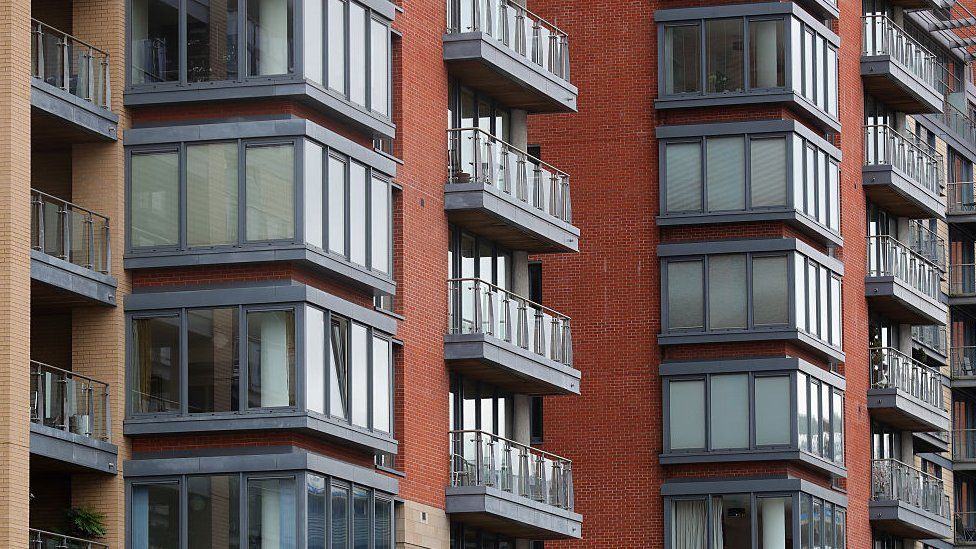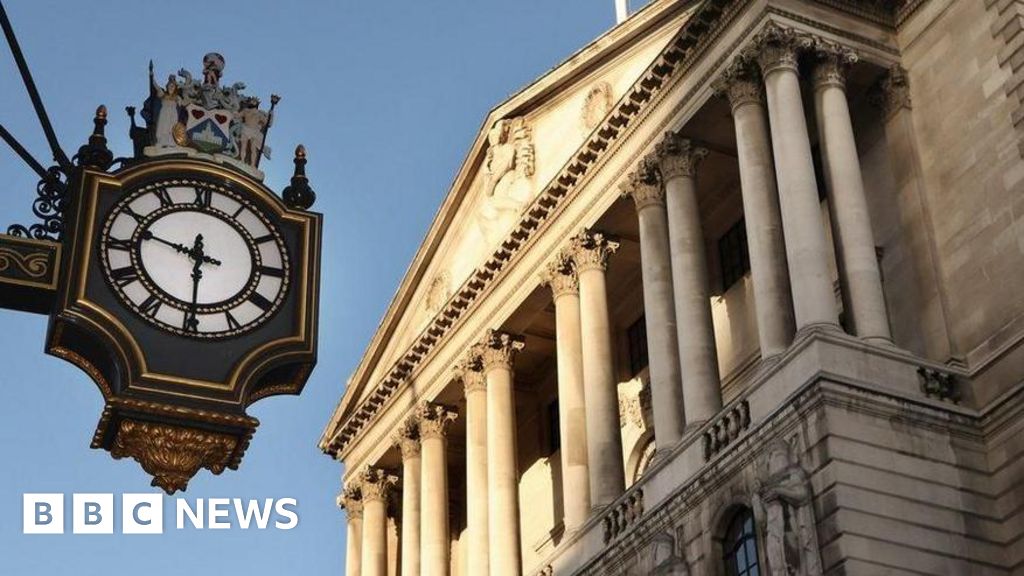ARTICLE AD BOX
 Image source, Getty Images
Image source, Getty Images
By Becky Morton
Political reporter
The government is facing growing calls to ban new leasehold flats in England and Wales.
It has said a ban on the sale of new leasehold houses will be added to a bill, which has been introduced to Parliament, as soon as possible.
But Minister Baroness Penn said abolishing leasehold for flats was "more complicated" and reforms would be taken forward at a later date.
Campaigners, Labour and some Tories want leasehold to be scrapped entirely.
Under the current system leaseholders often have to pay ground rent and expensive maintenance charges.
This is because they only own the lease, which gives them the right to use the property for a fixed term, but not the land it is built on.
A bill, which was introduced in Parliament on Monday, would make it easier and cheaper for homeowners to extend their lease or buy their freehold. At the moment this can be a complicated and expensive process, often costing thousands of pounds including legal fees.
However, the bill did not include a ban on new leasehold flats.
Campaign groups want a commonhold system - where occupants jointly own and take responsibility for their buildings without an expiring lease - to replace leasehold for new flats.
Raising the issue in the House of Lords, Labour's shadow spokeswoman for housing Baroness Taylor said: "Of course we welcome the reform of leasehold but with five million leasehold properties in England, 70% of which are flats, there is disappointment that they are not included in the bill."
Baroness Penn, a junior minister in the Department for Levelling Up, Housing and Communities, told peers reforming leasehold for flats was "inherently more complicated" than for houses as they required an arrangement to facilitate management of the building.
"For flats, the government remains committed to reinvigorating commonhold to give developers and homeowners a viable alternative to leasehold show they choose it," she said.
She added: "We will be taking forward at a later date reforms to the commonhold system to allow that to replace the leasehold system."
Conservative peer Lord Young, a former minister, said he welcomed the bill but that it did not do what Housing Secretary Michael Gove originally promised - to "liberate people" from "an outdated, feudal system".
He suggested peers could amend the legislation to deliver this aim.
Another Tory peer, Lord Cormack also suggested the House of Lords could "put right what [Mr Gove] has not yet got right".
Baroness Penn insisted the bill was focused on "helping leaseholders now" by making existing leases fairer and more affordable.
Campaigner Harry Scoffin, who launched the Free Leaseholders group last week to strengthen the bill, said he understood some Tory MPs were also concerned the bill did not go far enough on flats and were considering proposing their own changes.
Labour has said it would back such moves but without government support they are unlikely to succeed.
The party has said it would make commonhold "the default tenure for all new properties" if it wins power.
Mr Scoffin said: "It is clear that it will be up to the next administration to bring commonhold out of the deep freeze, but it's not too late for this government to require 'share of freehold' on new apartment schemes, which is a tried and tested arrangement that gives residents control of their costs and service providers from day one.
"Such a positive change is simple to do and would be cost neutral to the Treasury."
Under share of freehold, a flat still has a lease but there is greater control over how the building is managed.
The majority of leasehold homes in England are flats and the proportion of new-build houses sold as leaseholds has fallen from a 15% high in 2016 to just 1% in December 2022.
However, the government said this would be added at a later stage in its passage through Parliament.
Baroness Penn told peers leasehold reform was "complex" and "we're taking the time to get things right".
She added: "I do understand the desirability of bringing forward these clauses as soon as possible for Parliament's scrutiny and that's what the government intends to do."

 1 year ago
33
1 year ago
33








 English (US) ·
English (US) ·